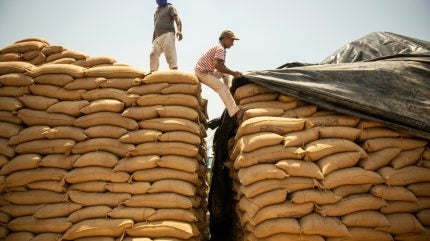
A long-running dispute over packaging regulations has escalated in India, where sugar producers are challenging a decades-old law that requires a portion of their product to be packed in jute bags.
The case is being closely watched in both agricultural and packaging sectors, as it touches on cost, safety, and environmental policy.
Since 1987, Indian law has required sugar mills to pack at least 20% of their output in jute sacks, a measure originally introduced to support the country’s traditional jute industry.
In recent years, the government under Prime Minister Narendra Modi has stepped up enforcement of the rule, warning of penalties for companies that fail to comply. This push has now led to legal action by sugar producers, who argue the policy is outdated and commercially damaging.
Costs and contamination concerns at the heart of dispute
Court filings reveal that sugar manufacturers estimate an added annual cost of around $76 million from using jute packaging instead of recyclable plastic alternatives.
The South Indian Sugar Mills Association claims the fibre bags also pose hygiene and contamination risks, which could affect supply agreements with major buyers.
Companies such as PepsiCo, Coca-Cola, Nestlé and ITC reportedly prefer sugar packed in plastic due to food safety concerns.
The mills argue that the jute packaging requirement places them at a commercial disadvantage, especially when bulk purchasers reject deliveries in fibre sacks.
Government defends jute as a rural welfare measure
In response, the Indian government has dismissed contamination concerns, saying jute is durable and less prone to pest-related damage. Its legal filings describe the jute mandate as a “welfare legislation” that supports around 4 million farming families involved in jute cultivation.
The government maintains that the policy helps preserve a traditional industry with deep rural roots.
Prime Minister Modi, a vocal supporter of India’s rural economy, has praised jute reservation rules in the past, saying they contribute to revitalising local livelihoods.
Court decision could set precedent for packaging policies
The legal case, being heard in the Karnataka High Court, began in August 2024 and is now approaching its final stage. A ruling is expected in the coming weeks.
The outcome could have implications beyond the sugar sector, as similar disputes are emerging in other industries, including electronics, where companies are resisting tighter rules on e-waste recycling.
With India consuming an estimated 28 million tonnes of sugar annually, the court’s decision could significantly influence future packaging standards, balancing traditional industry support against modern commercial and safety demands.



